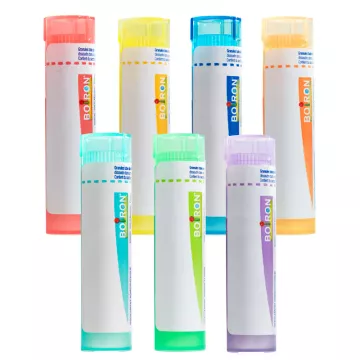What causes a runny nose and how can it be effectively treated?
A runny nose, medically known as rhinorrhea, can be caused by many factors including allergies, infections such as colds or flu, and environmental changes. Understanding the underlying cause is essential to choosing the right treatment.
- Allergies: Allergens such as pollen, dust or pet hair can trigger this condition. Treatment may include antihistamines or steroid nasal sprays to reduce inflammation.
- Infections: A virus such as the common cold or flu can lead to excessive mucus production. Remedies can range from extra rest to the use of over-the-counter medications to relieve symptoms.
- Environmental factors: Sudden changes in temperature or dry air can also cause a runny nose. Using a humidifier or saline nasal sprays can help relieve symptoms.
How can I prevent a runny nose?
Preventing a runny nose depends largely on the cause. Here are some general strategies:
- Avoid allergens: If allergies are the cause, it's crucial to minimize exposure to identified allergens.
- Hygiene: Regular hand washing can reduce the risk of contracting viral infections.
- Humidification: Maintaining adequate humidity levels in living spaces can help prevent dry nasal mucous membranes.
When should I consult a doctor about a runny nose?
We recommend consulting a doctor if symptoms persist for more than a week, worsen, or are accompanied by fever, severe headaches or any other unusual symptoms. This could indicate a more serious infection requiring specific treatment.
The best home remedies for a runny nose
Some of the most effective home remedies include:
- Steam inhalation: Breathing steam can help thin mucus, making it easier to manage.
- Hydration: Drinking plenty of fluids can help dilute mucus and relieve nasal congestion.
- Rest: Allowing the body sufficient time to recover is crucial, especially in the case of a viral infection.
What's the difference between a runny nose caused by a cold and one caused by allergies?
- Associated symptoms: A runny nose caused by a cold is often accompanied by symptoms such as a sore throat, cough and sometimes a fever. On the other hand, an allergy-related runny nose may be accompanied by itchy eyes, sneezing and a blocked nose sensation, without fever.
- Duration: Symptoms of a cold tend to resolve within a week to ten days, while allergic reactions can last as long as exposure to the allergen continues.
- Treatment: Treatments also vary; antihistamines are most effective for allergies, while decongestants and other symptomatic remedies are used for colds.
Are there specific treatments for runny noses in children?
Children are particularly sensitive and require special treatments:
- Saline solution: drops of saline solution can help clean and moisturize children's nostrils, facilitating respiratory comfort.
- Medical consultation: It is advisable to consult a pediatrician before administering any medication, as many products intended for adults are not suitable for children.
- Natural remedies: Humidifying the air and ensuring proper hydration are simple and safe measures to relieve symptoms in young children.
Can climate change affect the frequency of runny noses?
Yes, climate change can affect the frequency and severity of runny noses:
- Dry air: Cold, dry winter air can irritate nasal mucous membranes, leading to a runny nose.
- Allergens: Warmer weather can extend the allergy season, increasing exposure to allergens such as pollen, which can lead to more frequent or more severe symptoms.
Can essential oils be used to treat a runny nose?
Essential oils can offer symptomatic relief for a runny nose:
- Eucalyptus: Known for its decongestant properties, eucalyptus oil can be inhaled to help clear nasal passages.
- Peppermint: Similar to eucalyptus, peppermint is often used for its cooling, decongestant effect. It is important to use them with care, especially for children and pregnant women, and always dilute them correctly.
How can I maintain good nasal hygiene to prevent a runny nose?
Maintaining good nasal hygiene is crucial to preventing infections and managing allergies:
- Regular cleaning: Using saline nasal sprays to clean the nostrils can help eliminate allergens and pathogens.
- Avoid irritants: Limiting exposure to pollution, tobacco and other irritants can reduce the frequency of runny nose episodes.
- Regular check-ups: Regular consultations with an ENT specialist can help monitor and treat chronic conditions affecting the nasal passages.

